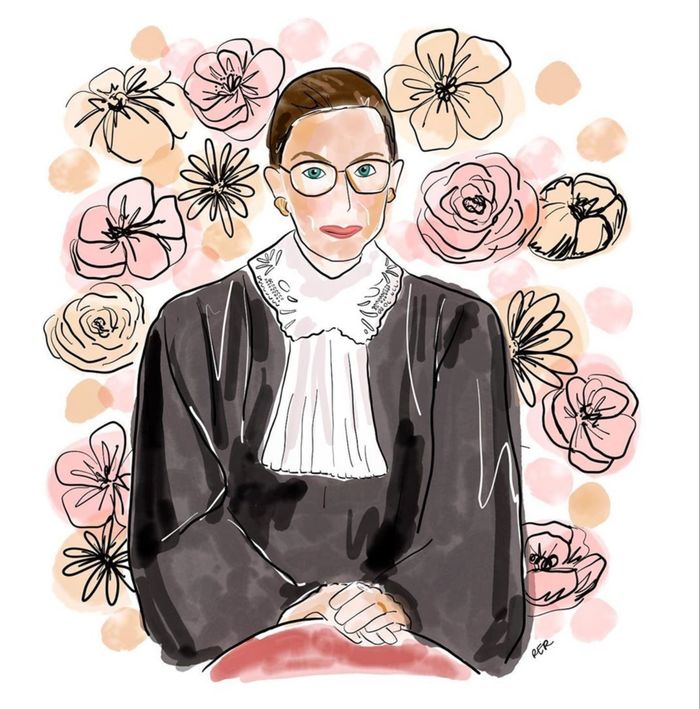Carving out identity: Isolation and community as a migrant
Through a genuine and personal reflection of her upbringing, Lucia Neirotti vividly shares the non-presence of her cultural heritage, and her pride for being a migrant.
I am a relatively strange type of immigrant. I lived long enough in a foreign country to remember living there, but not so long that I kept the accent or the national identity. As such, I am not a first-generation immigrant like my parents, who left their home country as adults. But nor can I label myself second-gen because I still remember my life outside the UK. My parents are also from Argentina, a country on the other side of the world which, if defined by various assumptions I’ve heard over the years, is really called ‘Argentinia’ and functions as an incubator for elite footballers and beef. It is the country known for hosting Total Wipeout and for losing a war against the UK in three weeks. It is also, to a confused minority, “somewhere in Spain, right?” But although I still defend Maradona’s Hand of God and was so belligerent about referring to the Falkland Islands as las Islas Malvinas at school that I got detention, I am not and never have been patriotic. My roots are weak: those that tie me to my history and my extended family are almost mythological, like a signal lost somewhere over the Atlantic; those that I formed here, where I was raised, are too shallow to keep me anchored.
“To some people at school, my fragmented English meant that I was stupid, my packed lunch was too smelly to be around, and my frizzy hair looked so dirty that I must constantly have had lice.”
Despite my £1330 citizenship papers, I do not consider myself British either. My hair, my build, my skin, my conversations with my mother in Spanish, spoken loudly in public because no one will understand us anyway, all mark me out as different. And although I’m ethnically European enough (like many Argentinians) to pass as one, the detail and even the truth of where I come from didn’t matter to those who only saw me as the opposite of ‘native’. To some people at school, my fragmented English meant that I was stupid, my packed lunch was too smelly to be around, and my frizzy hair looked so dirty that I must constantly have had lice. And according to one exceptional xenophobe who was at least aware that Argentina and Colombia are in the same continent, my parents even survived the journey here on a raft made of cocaine.
My identity as an outsider, if not as an immigrant, is not based on half-forgotten childhood memories or my parents’ cooking; it is not based on my ties to Argentina, but because of my lived experiences in Britain. Yet throughout my early childhood and in spite of its lingering effects, I was never ashamed of where I came from. Even while I straightened my hair and tried to care about EastEnders in order to fit in, I was secretly proud of the things that I had that no one else did. I have been fluent in three languages, lived in four countries, and experienced two distinct cultures at their most real and unvarnished. The world is in my reach; I have no fear of starting over, alone and in an unknown place, because my parents did it before me. Three times! There is nothing that anyone could ever do to me that could tarnish that gratitude and pride.
As I’ve grown up, however, so too have the problems I face as an immigrant morphed into something more covert and insidious. Being South American, the demographic group to which I belong (in the most general possible terms) is such a minority at Cambridge that it wasn’t discussed in my first-year Diversity workshop or in any similar talks about representation. The History of Art Department, which this year began offering an optional Latin American art module, has otherwise made only a single hour of teaching on the subject compulsory throughout its three-year course. Many of my peers could easily graduate knowing as much about Latin America as someone who fell asleep watching Frida.
“It is rather knowing the feeling of being rootless, of growing into, coming to terms with, and coming to love what makes us ‘alien’.”
Given the total non-presence of my cultural heritage in my immediate surroundings, and the recent upsurge of anti-immigrant rhetoric nationally, I find comfort and solace in the only group in which I am an authentic member. What I share with other (children of) immigrants is not the food we eat, what language we speak, or the colour of our skin. It is rather knowing the feeling of being rootless, of growing into, coming to terms with, and coming to love what makes us ‘alien’. These unite us and are the only things with which I can wholeheartedly identify. Neither British nor Argentinian, I am a migrant.
 Features / Should I stay or should I go? Cambridge students and alumni reflect on how their memories stay with them15 December 2025
Features / Should I stay or should I go? Cambridge students and alumni reflect on how their memories stay with them15 December 2025 News / Cambridge study finds students learn better with notes than AI13 December 2025
News / Cambridge study finds students learn better with notes than AI13 December 2025 Comment / The magic of an eight-week term15 December 2025
Comment / The magic of an eight-week term15 December 2025 News / News In Brief: Michaelmas marriages, monogamous mammals, and messaging manipulation15 December 2025
News / News In Brief: Michaelmas marriages, monogamous mammals, and messaging manipulation15 December 2025 News / Uni Scout and Guide Club affirms trans inclusion 12 December 2025
News / Uni Scout and Guide Club affirms trans inclusion 12 December 2025










